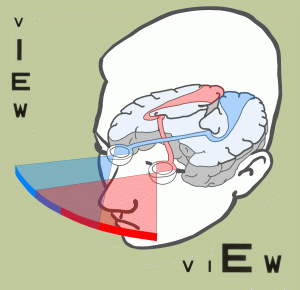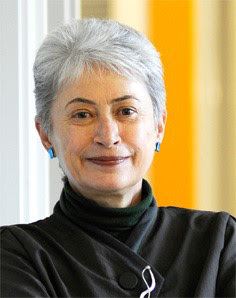We have the pleasure of inviting you to the following upcoming events:
“Top-down Multiculturalism versus Multiculturalism from Below”
 International conference “Visual Worlds: The Aesthetics and Politics of Affect”
International conference “Visual Worlds: The Aesthetics and Politics of Affect”Sneja Gunew (FRSC) B.A. (Melbourne), M.A. (Toronto), Ph.D. (Newcastle, NSW) has taught in England, Australia and Canada. She has published widely on multicultural, postcolonial and feminist critical theory and is Professor Emerita of English and Women’s and Gender Studies at the University of British Columbia, Canada. She was Director of the Centre for Research in Women’s and Gender Studies (2002-7) and North American editor of Feminist Theory (Sage) 2006-10. She was Associate Principal of the College for Interdisciplinary Studies, UBC, 2008-11.
She has edited and co-edited four anthologies of Australian women’s and multicultural writings: Feminist Knowledge: Critique and Construct and A Reader in Feminist Knowledge (Routledge 1990-91). In Australia, she compiled (with others) A Bibliography of Australian Multicultural Writers (the first such compilation in Australia) and co-edited Striking Chords: Multicultural Literary Interpretations (1992), the first collection of critical essay to deal with ethnic minority writings in the Australian context. She set up the first library collection of ethnic minority writings in Australia. Continuing her focus on cultural difference, Gunew edited (with Anna Yeatman) Feminism and the Politics of Difference(1993) and (with Fazal Rizvi) Arts for a Multicultural Australia: Issues and Strategies (1994).
Her books include Framing Marginality: Multicultural Literary Studies (1994) and Haunted Nations: The Colonial Dimensions of Multiculturalisms (Routledge 2004). Based in Canada since 1993, her current work is on comparative multiculturalisms and diasporic literatures and their intersections with national and global cultural formations. Her most recent book is titled: Post-Multicultural Writers as Neo-Cosmopolitan Mediators. http://faculty.arts.ubc.ca/sgunew/
Keynote speech (abstract)
Visual Affect: Distant and Proximate Empathy
The paper juxtaposes Luc Boltanski’s influential work on ‘distant suffering’ in relation to the media with Teju Cole’s column on photography in the NY Times Sunday Magazine. I will use these theorists to develop a notion of post-human affect in relation to the different photos of Alan Kurdi, a toddler whose body was washed up on the shores of Turkey in 2015 and became emblematic (for a time) of the suffering undergone by Syrian and other refugees. While empathy is undoubtedly immediately evoked by this visual text, how useful is it in terms of transmuting this empathy into political change? To what extent does this kind of empathy in fact engender a continuous hunger for comparable material in order to produce what Zizek terms ‘symbolic identification’ (Sublime Object of Ideology, 105)? And how do we get from this legacy of representation to what has been termed the post-human where, in Spivak’s terms, humans are planetary accidents rather than agents (An Aesthetic Education, 339)? To what degree, for example, do we need to take into account other taxonomies of affect informed by other languages and cultures as, for example, the Sanskrit aesthetic framework of rasa/bhava? (https://emotionsblog.history.qmul.ac.uk/2016/07/decolonising-theories-of-the-emotions/). The consequences are that we situate the affect (sensation before it becomes a named emotion) associated with humans in a spectrum that includes all forms of animate and inanimate suffering.

